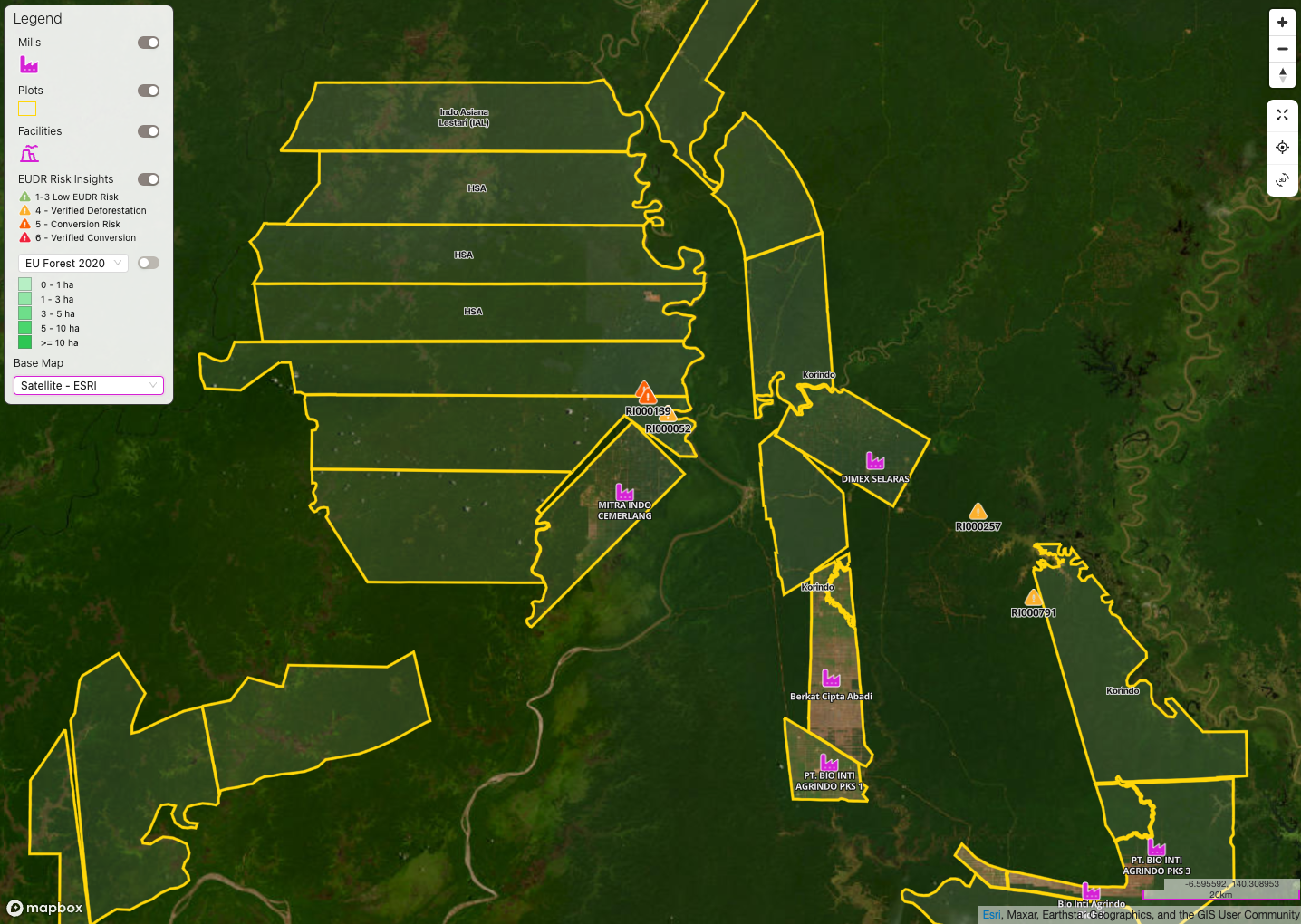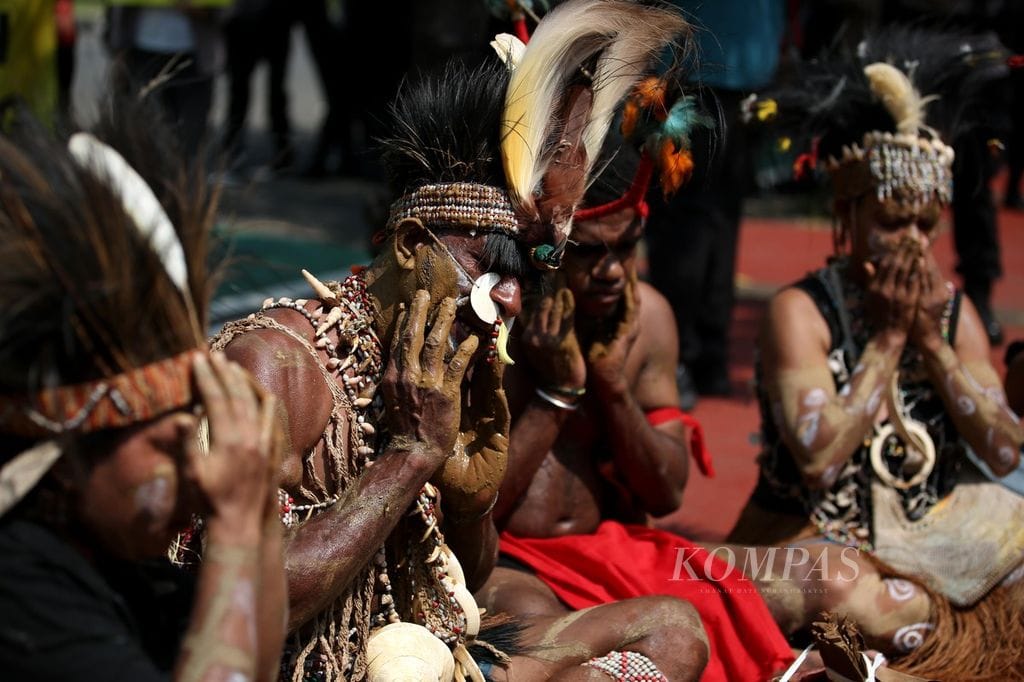“All Eyes on Papua”: The Indigenous Fight for Survival Against Palm Oil Expansion

In late May 2024, the Awyu and Moi tribes, along with civil society groups, protested outside Jakarta's Supreme Court, demanding the removal of palm oil corporations from their ancestral lands. They see this as essential to preserving Papua’s forests and restoring indigenous rights.
The lawsuit was triggered when the provincial government issued an environmental permit covering 36,094 hectares of the Awyu tribe’s forests without their consultation, violating their customary rights. Despite the tribe’s efforts, lower courts sided with the government, which argued the economic benefits outweighed social and environmental concerns. The Awyu tribe has since appealed to the Supreme Court, urging it to consider the wider implications of deforestation and indigenous rights violations.
Central to their case is the argument that the government ignored national laws requiring Free, Prior, and Informed Consent (FPIC) before granting these licenses. They also highlighted the lack of an Environmental Impact Analysis (AMDAL), which points to violations of environmental regulations. While financial interests may have influenced the lower courts, the Supreme Court has an opportunity to enforce the legal protections for indigenous peoples and the environment—especially relevant now with the European Union’s Deforestation Regulation (EUDR) setting stricter standards for imported goods linked to deforestation.
Who are the Awyu and Moi Tribes?
The Awyu and Moi tribes have lived in the forests of Papua for generations. For them, these lands are more than just a resource—they are central to their culture, livelihoods, and spiritual traditions. The forests provide everything from food and medicine to connection with their ancestors. The Moi tribe is based in Sorong, Southwest Papua, and the Awyu tribe is from Boven Digoel, South Papua. The expansion of palm oil plantations threatens to destroy both their way of life and the delicate ecosystems they depend on.
The Threat of Palm Oil Expansion

The plight of the Awyu and Moi tribes represents a larger issue—the unchecked expansion of palm oil plantations in Papua. The Tanah Merah Project, for example, threatens to turn the Awyu’s forests into Indonesia’s largest palm oil plantation. This project has been mired in corruption allegations, including forged signatures and violations of environmental laws.
Investigations by groups like The Gecko Project reveal a troubling pattern in Papua: corporations, often with the backing of local authorities, bypass legal and ethical obligations. This disregard for laws, including FPIC and AMDAL, threatens not just the indigenous communities but also the region’s vast natural resources.
#AllEyesOnPapua: A Global Movement for Justice
The #AllEyesOnPapua movement has emerged as a global call for action, drawing attention to the destruction of Papua’s rainforests and the violations of indigenous rights. Through social media, petitions, and international campaigns, activists are urging the world to hold governments and corporations accountable.
With the European Union’s Deforestation Regulation (EUDR) setting stricter guidelines on deforestation-linked imports, the movement asks consumers to consider the true cost of palm oil products. The international spotlight on Papua, amplified through #AllEyesOnPapua, aims to ensure that the fight for justice for the Awyu and Moi tribes is not overlooked.
A Legal Battle with Global Implications
The legal case led by the Awyu and Moi tribes is more than a fight against deforestation—it’s about setting a precedent for indigenous rights and environmental justice. They argue that the government’s failure to seek their Free, Prior, and Informed Consent (FPIC), alongside the absence of proper environmental assessments, violated national laws.
If the Supreme Court rules in favor of the tribes, it could reshape Indonesia’s approach to development, forcing the government to prioritize sustainable growth and respect indigenous rights. Such a decision would also send a strong signal internationally, demonstrating the importance of balancing economic interests with environmental and social responsibility.
The Future of Papua’s Forests
Papua’s forests are vital not only to the Awyu and Moi tribes but also to global environmental efforts. Covering 34 million hectares, they account for a third of Indonesia’s remaining forest cover and play a crucial role in storing carbon and supporting biodiversity.
While efforts to protect these forests continue, the threats of illegal logging and land conversion for plantations persist. A favorable Supreme Court ruling would be a victory not just for indigenous rights but for the broader environmental movement, proving that the exploitation of natural resources can no longer come at the cost of those who have protected them for generations.
Conclusion

As the Supreme Court considers the fate of Papua’s forests, the world watches. The Awyu and Moi tribes stand at the forefront of a battle that extends beyond their lands—it's a fight for the future of the planet. The global community, through movements like #AllEyesOnPapua, must continue to demand justice, not just for Papua’s indigenous peoples, but for the environment and future generations.

